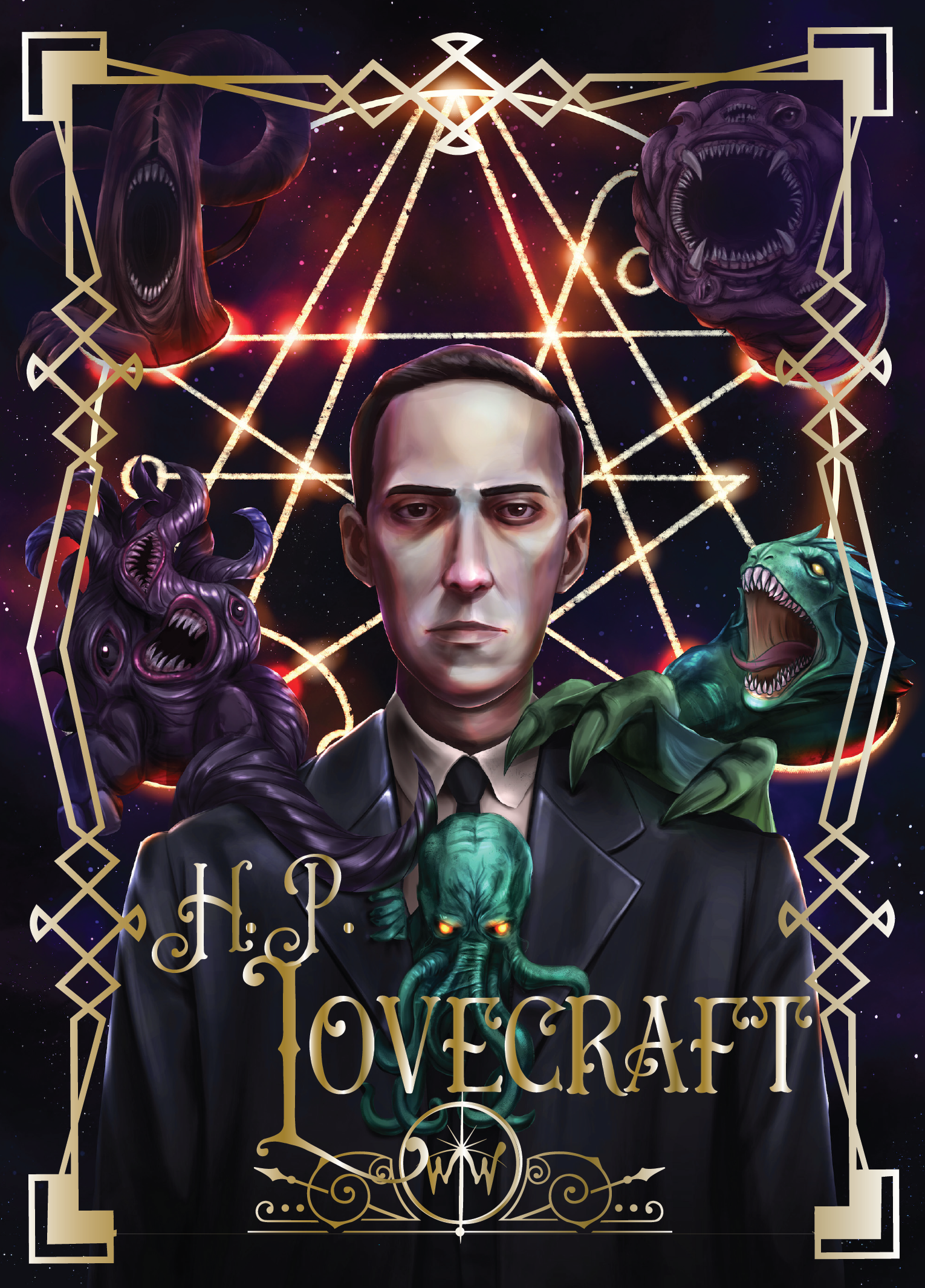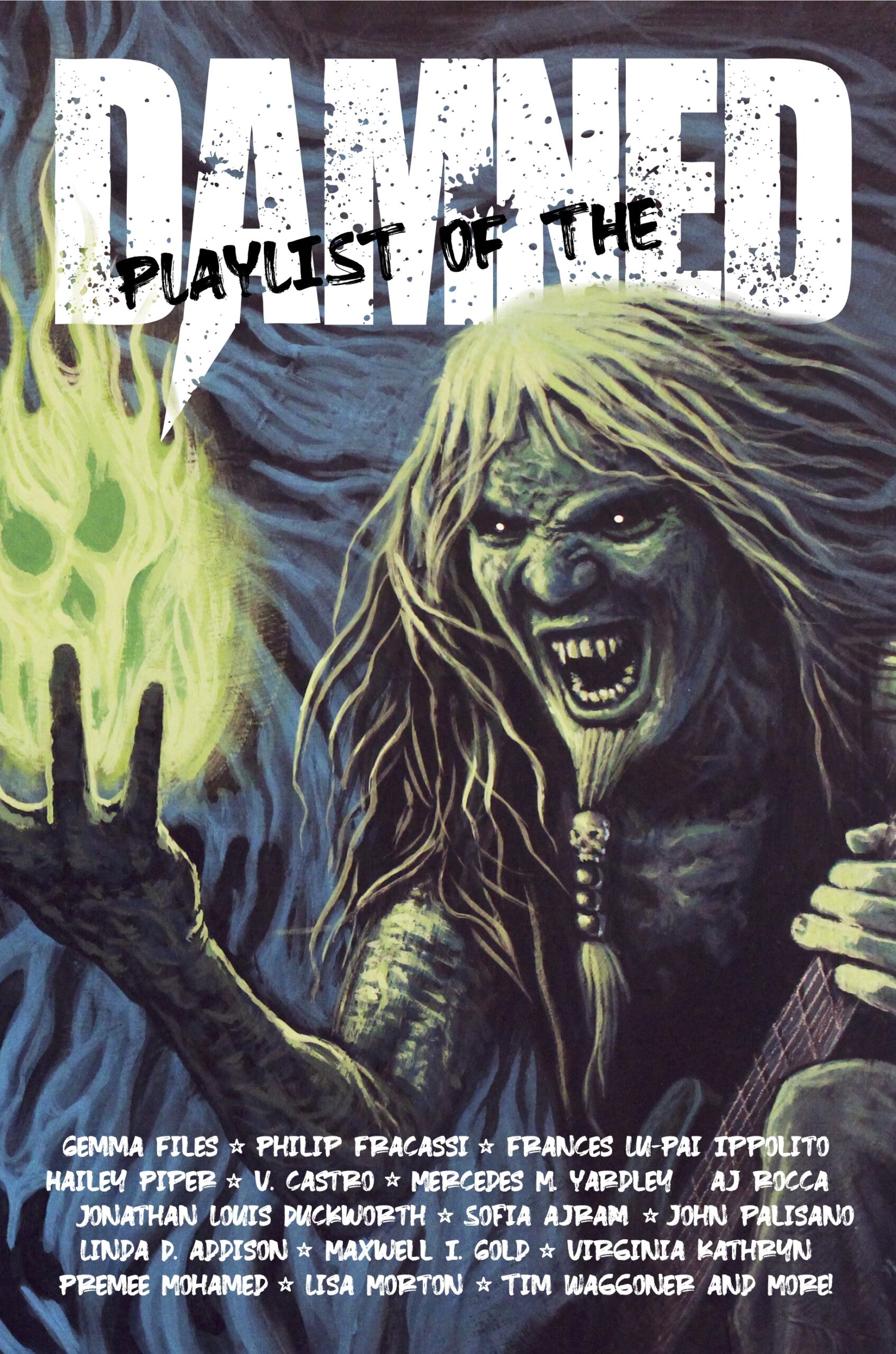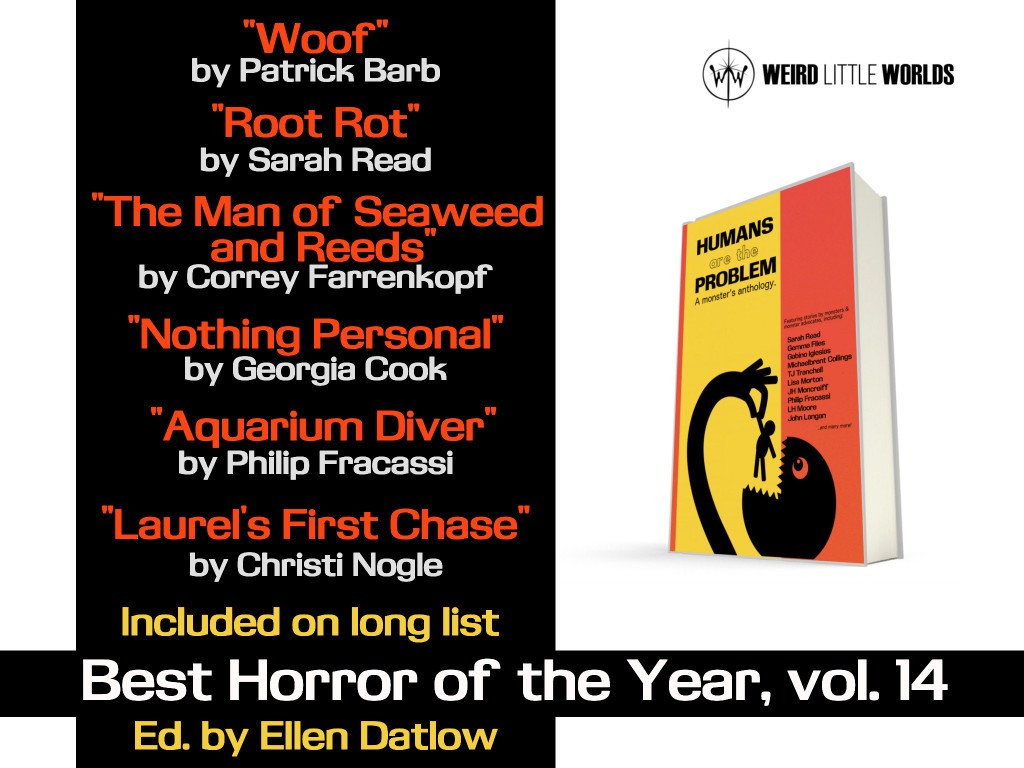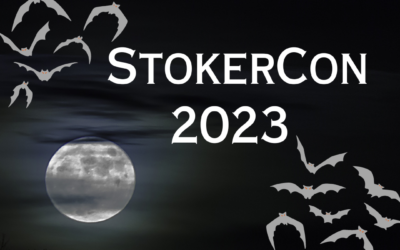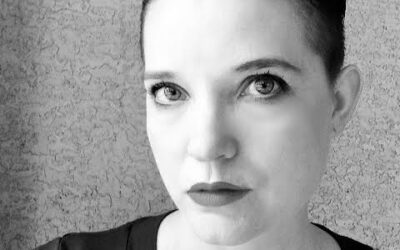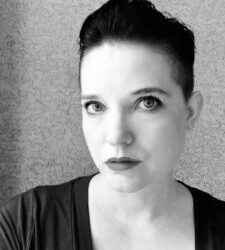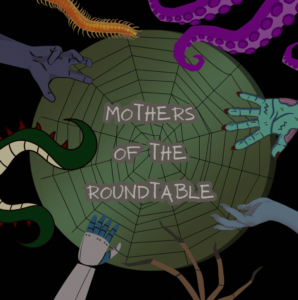
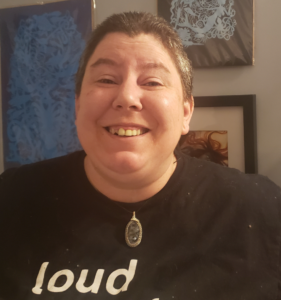 R. Leigh Hennig gathered many of the amazing authors from Mother: Tales of Love and Terror for a council at the roundtable about writing, mothers, and horror. Join us as we pop in for a brief spotlight on how the stories of Mother, and their makers, worked their horrible magic to create this book.
R. Leigh Hennig gathered many of the amazing authors from Mother: Tales of Love and Terror for a council at the roundtable about writing, mothers, and horror. Join us as we pop in for a brief spotlight on how the stories of Mother, and their makers, worked their horrible magic to create this book.
Author Spotlight: Elizabeth R. McClellan, author of “Passed”
Q: What inspired your story?
A: I had this themed call in my emotional support poetry spreadsheet, and when I read T..Kingfisher’s (Ursula Vernon) NETTLE AND BONE, I was immediately OBSESSED with the Dustwife. The thoughts that sent percolating around my brain definitely resulted directly in PASSED, hence the dedication. This kind of Southern Gothic is endemic to my work, and between themes of generational curse/blessings, reimagining those outside binary gender, and the magnificent Dustwife, this is what came out of the blender of my soul when I saw the deadline was approaching. (Read NETTLE & BONE, y’all, audio for preference). Thinking on this answer, I have to add that nursing my 20 year old cat with terminal cancer through the scary part of his illness where I essentially grieved him as if he was dying deeply rooted itself in the mood I was in by the time he was getting stabilized and NETTLE AND BONE came out. He’s living his best old man cat life for now and acting five years younger, but it was very scary there for a while and I’ve had this cat literally half my life so I’m still deeply sitting with my feelings knowing that we have good days that will at some unspecified point stop being good and I will have to usher him to the clearing, which is the deal we make when we bring these amazing creatures into our lives.
Q: Do you ever see yourself revisiting the topic or theme or your story?
A: If I stop writing Southern Gothic, you know the pod people have gotten me. These are interesting characters and I am known to go revisit a story poem, as with my work on a very particular Tennessee and Memphis Delta version of the Devil. I may very well revisit these folks, they have more stories, I think, and I wouldn’t say I’ve gotten to know everything there is to know about them.
Q: Did you know what you wanted to do with this story from the start, or did it surprise you?
A: I knew I wanted a generational talent for speaking to the dead passing between a mother and a nonbinary child of tween age. The characters quickly hung themselves on those specifications and determined how the poem was going to go.
Q: What was your process for writing this, and did that at all differ from your usual approach?
A: Based on the Kickstarter, this was a goal market; I have my tickler system for themed calls; as I recall this is one I wrote because the poetry alarm (there are multiple poetry alarms) had gone off a couple of days in a row and I had ignored it and was feeling like a slacker, so I set some more alarms and made time to write it with enough lead time to polish it before the deadline. That’s fairly typical for me.
Q: If there were ever a FATHER anthology put together as a sequel, would you follow that up, or write something totally new?
A: I’d love to write for a FATHER anthology, but I’m not even sure there is a father in this story-poem. I could take a FATHER prompt a million ways of which Gothic is only one — the stories about fathers I have to tell in this arena just don’t touch on what PASSED does. The work of funerals is gendered in the American South and the religious tradition that produced me, and it’s a woman-coded thing to do the necessary parts of helping people grieve even if the funeral director is usually a man. There are fragments in this poem of the many times part of my adult skillset has been how to take care of grieving people when you’re in the outer circle of the grief — my friend widowed young and out of the blue, another friend who lost his father while he was thousands of miles from home. It’s everything from staying sober to be able to run to the store for drinks and paper towels because the widow is drunk and who’s going to tell her she shouldn’t be to packing up someone’s entire summer internship apartment while he sits in the living room looking shell shocked so by the time his mom gets off the plane there’s nothing left for them to do but grieve together when she thought she was going to have to do Logistics while grieving herself. It’s not that I don’t know men who have these skills but the few I do are poets in their own right. Fathers and death is just a different framework for me that wouldn’t create a piece like this one.
Q: Do you have any thoughts on turning this story into something longer, or do you feel the tale has been told?
A: I caught this child at the beginning of their story and captured the first moment where their path opened out before them. I’m certain we’ll meet again, I want to know them better.
Q: Have you explored these themes before, and if so, to what depth?
A: Southern Gothic, mothers, and the dead? All through my work. But this piece is the culmination of many poems that never saw the light of day where I was trying to process through the way “being the person who handles the business when people die around you” was part of my accepting myself as a queer adult, and the process of grieving too many dead friends while holding up the people closest to them, or holding up the friend group that’s a man down. When you’re the one people call, you go home to your own house and have complicated feelings to sort through, about the things your raising trained you to do, and about the loss you’re also grieving, and those poems were necessary but they weren’t for the public, just part of my process of surviving and replenishing to be The Person People Call, the link in the phone tree, the “I don’t know any other lawyers, what do I do,” the “get to Xs house immediately, Y is dead, I’m on the way but you’re closer.” As someone with a major mental illness who spent a lot of my twenties being Not Okay and Not Reliable, and the reality of all the people I’ve outlived I didn’t expect to, the way I keep having to rewrite my will because people with personal bequests keep predeceasing me, this position I occupy feels like repentance – not penance but becoming the person I wish i had always been when I was a hot mess for so long. I can’t make up all the things I did back then but I can be On It now. But it’s…a lot, to always be the Responsible Person in both your professional and personal life, and I don’t resent it, these are mutual relationships and I wouldn’t take anything back, but my poetry is my valve where I take the massive amounts of trauma I’m exposed to and sublimate it into something beautiful. If I’m not writing poetry I’m not doing well mentally; it’s a part of my mental hygiene like getting enough sleep and keeping my meds refilled.
Q: What would you like readers to take away from your story?
A: The concept of generational gifts and curses (or both!) that run along gender lines is deep in the bones of the tropes, particularly in Southern Gothic — cursed mothers, cursed daughters. But gender isn’t binary and there seems no sensible reason why the otherworldly runs on TERF type principles. There was never a question that the kid might not get the ability because they are nonbinary…but like many mothers I know with trans kids the territory is still new and they’re going full speed ahead for their trans and GNC kids while frantically educating themselves and dealing with all the regular anxiety of parenting teens and teenagers and trying not to pass on generational trauma while preserving the good. A mother in the position of Mama in PASSED is doing her best in uncertain times and a hostile world. I salute every parent doing the same in the real world where they’re trying to legislate kids out of existence and call the parents child abusers for protecting their kids from this transphobic fascist world as best they can. This is for all my mamas I’ve watched do volts-face on trans rights from skeptic to hellraiser the second it meant protecting and loving their precious babies instead of rejecting them. A little late to the party? Who gives a fuck, they’re fighting like hell for everyone’s kids now.
Q: If your own mother could read this story, would you send it to her? Why or why not?
A: My mother is intensely proud of her daughter who practices domestic violence law and writes poetry. She has read bios identifying me as gender/queer and chooses not to discuss it in favor of asking “what does demisexual mean.” My mother is very frank that she does not understand 90% of my poetry, so I don’t generally send it to her unless it’s something I think she can relate to. I can be a daughter to my mother without dysphoria, but I won’t lie and pretend I don’t write mothers who accept that they have children, not daughters or sons, as a bit of wish fulfillment. I love my mother very much; she told me just tonight how proud she was of my poetry; she’ll never read this, and that’s for the best.
Q: Why did you decide to submit to this anthology? Was there something particular that called to you?
A: My general policy is #PayPoets so I actively monitor all paid poetry opportunities that catch my eye and don’t exclude genre. I remembered the buzz around the MOTHER Kickstarter when the general call went out and noted the authors involved, though i was too broke to back it at the time, and decided it was a target market of high priority. I kept the call very highlighted in my emotional support spreadsheet so I didn’t blow the deadline. Originally I thought I was going to write one of my many many examinations of the feminine Monstrous, possibly the Grendels mother retelling that keeps knocking around my brain but hasn’t decided to be born yet. The gentle Gothic that I produced out of the moment where I sat down to write a poem good enough for this TOC was not at all my initial thought, but I adore what I made of it and you could have knocked me over with a feather the day I was accepted. I’m so glad to even be here!

The Weird Team is comprised of several unhinged individuals that have a love of life and a lust for adventure. They scour the world to find the strangest, scariest, and most wonderful news in the universe.


